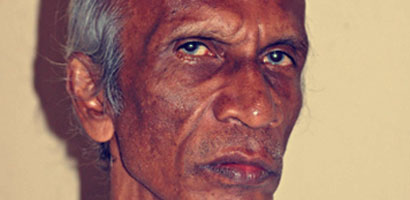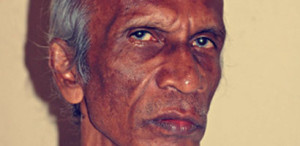Kishali Pinto Jayewardene
Making an extraordinarily acute observation, veteran broadcaster and scriptwriter Tilak Jayaratne who passed away this week after battling a killer disease with characteristic courage, pointed out in a telephone conversation with me on the phone barely two months ago that there was little point in ‘grumbling about bad political leaders or voting them out in the hope that the replacement would deliver the goods.’
As he said quite rightly, these are strategies that have failed time and time again in Sri Lanka. Instead of cheering ourselves hoarse for politicians who quite miserably and quite predictably abandon their promises upon assuming power, public faith should be reposed in the slow and steady building up of institutions so that the integrity of these institutions would be left intact even when power changes hands.
This must be the public focus and the public demand. And this demand must be rooted in our acknowledgement that when these democratic institutions decline, so does the country. Our collective failure to do so has left Sri Lanka bereft in what should have been our greatest moment of triumph when a three decade old conflict ended in 2009.
These were much the same sentiments that he penned in a collaborative work on media that we engaged in some months ago. Unlike common critics who fail to recognize the singularly negative actions of past administrations that have contributed to the deterioration of Sri Lanka’s media seen most evidently today, his critique was invariably more rational and more far sighted. Even when engaging in the most devastating analysis of government actions, there was perspective.
Consequently his critiques had weight and rationality underlying their essential thrust which compelled even those who disagreed with him, to take what he said seriously.
Refusing to bow down to arbitrary actions
His principled contrariness caused him much grief in many places that he worked in. His ejection from the Sri Lanka Broadcasting Corporation’s (SLBC’s) Education Service which he founded and which broadcast educational programmes intended primarily for students was one good example. When his brainchild, the Non-Formal Education Programme (NFEP) focused on controversial issues such as labour unrest etc regarding which listeners were requested to phone in and comment/ask questions from ministers, it was abruptly stopped and its handlers asked to broadcast songs instead. Reprimanded, Tilak obstinately (and quite correctly) refused to acknowledge that he had done anything wrong.
The stoppage of the NFEP was brought before the Supreme Court which articulated what remains the classic judicial precedent in this country on the value of an independent broadcast service (Wimal Fernando v. Sri Lanka Broadcasting Corporation [1996] 1 Sri LR 157, judgment of Justice MDH Fernando writing for the Court). The judges reminded the Chandrika Kumaratunge government of the day that its own media policy had emphasized the media’s right to expose corruption and misuse of power. The Court concluded that the basis on which the NFEP was stopped was clearly arbitrary.
Even though the authorities contended that the matter broadcast was defamatory and politically biased resulting in public discontent, it was judicially opined that this was in fact, not the case. Instead, the NFEP dealt with matters of considerable public interest. For example, industrial unrest, its causes and its resolution, were of public concern and had been rightly focused on.
Pertinently the Court remarked that “….it is well to remember that the media asserts, and does not hesitate to exercise, the right to criticise public institutions and persons holding public office; while, of course, such criticism must be deplored when it is without justification, the right to make and publish legitimate criticism is too deeply ingrained to be denied. Here too, it is relevant to note that the government’s Media Policy was intended to encourage criticism, in the public interest, in order to expose shortcomings.
If nothing else, the right to equality requires that the media itself is not immune from justifiable criticism, internally and externally.”
These are certainly good reminders to us today when the independent media is at its most beleaguered and government manipulation of media is at its most unscrupulous heights.
The absence of actual community radio in Sri Lanka
Tilak’s strongly held views on the deficiencies of community radio in Sri Lanka also upset many, nationally as well as overseas who felt that he was taking too dire a view of the situation at the time. some years ago. Perhaps now, when there is evidently very little left of the workings of genuine community radio in the country, his might be looked upon as a prophetic voice.
His unequivocal opinion was that community radio should be established and managed by the community not by the state. The community should make all programming decisions, set policy and undertake other management tasks. Community broadcasters should be established independently of central and local government, political parties and commercial and religious institutions. Joint efforts with State broadcasters should be avoided, although agreements for the provision of assistance from the latter to community broadcasters may be envisaged.
Assessing on this basis, he was constantly at pains to point out that community radio in Sri Lanka did not exist in the true sense of that term. Rather, these stations were extensions of the state broadcaster, the Sri Lanka Broadcasting Corporation (SLBC) whose use of airtime for non-community purposes, such as political messages and hiring and firing of staff for political reasons went against the notion of community radio.
His experiences with the Uva Community Radio bore this opinion out in no uncertain terms when the team that he personally trained was attacked by arrogant provincial politicians scrambling for power and angered by independent exposure of their actions. Unprotected by strong legal and regulatory safeguards, these independent voices were ultimately subdued through brute political force. It was a sobering lesson indeed.
Undoubtedly, this experience deeply affected his belief that community radio would not be possible in Sri Lanka without comprehensive overhaul of the regulatory and legal framework. He passionately argued that community radio stations should be redesigned to be relatively small and should be established in cohesive communities that articulate common goals and are thus able to successfully surmount destabilising political influences. Independent licensing of community broadcasters was imperative as was its delinking from the SLBC.
Calling a spade, very much a spade
In many respects, this was a man who called a spade very much a spade and delighted in doing so. Many shied away from this unashamedly acerbic side of his personality which poked fun at the pompous, the hypocritical and the conniving. He exhibited a distinct lack of forgiveness towards politicians who had attacked the media in government but became media crusaders in the opposition. He was similarly unforgiving when it came to media persons who had abandoned their role as seekers of justice to become flag bearers for the government.
Tilak was comfortable most in engaging with ordinary people and their problems through the medium of his beloved community radio even to whatever extent possible within restricted confines and was openly scornful of glittering city based functions in five star hotels on media, good governance and the like. Many a time I have heard him remark on the ‘curse’ of project funding which certainly does enormous good when used conscientiously but when inadequately self regulated, results in actual problems of people being brushed aside by the superficial gloss of city based events, launches and conferences.
In recent times, he grew thoughtfully philosophical regarding the vicissitudes of life and when he could, became absorbed in reading Mohandas Karamchand Gandhi’s autobiography which I had picked up some years ago at the Raj Ghat.
Sri Lanka will miss this indomitable broadcaster, honest critic and most of all an honourable man who acted at all times according to his stubborn conscience.
– Sunday Times

